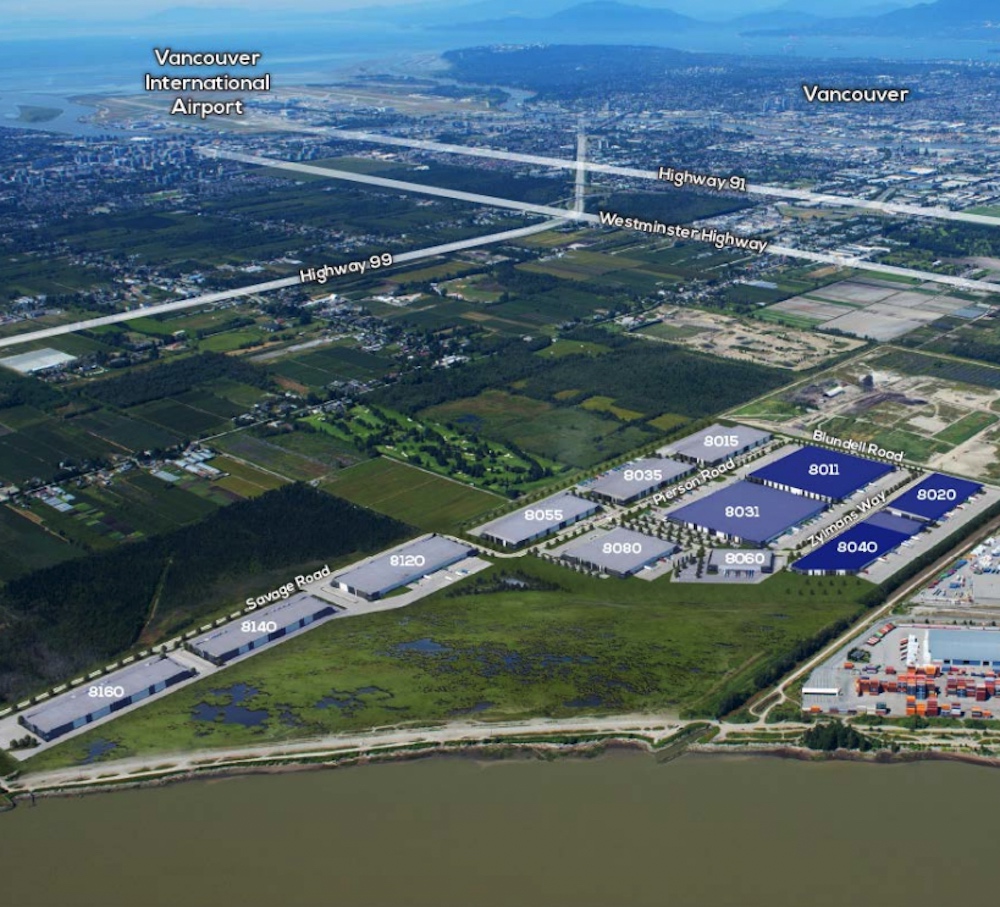Coca-Cola Canada has signed a major lease deal for an industrial space in south Richmond, enabling the soft drink giant to expand its production and distribution facilities serving British Columbia.
The company has leased a 209,000-sq-ft space at the new Richmond Industrial Centre complex at 8040 Zylmans Way, next to the port facility in the area.
It is committing $24 million to outfit the facility for its manufacturing line, along with $18 million in a new, specialized, combined sales, warehouse, and distribution facility.
The new manufacturing line in Richmond will enable the use of pre-form bottles, add capacity to the facility, and help decrease packaging emissions.
The new sales, warehouse, and distribution centre will combine the capacity of Coca-Cola’s existing distribution centres in Richmond and Coquitlam. This will also be the home base of Coca-Cola’s local fleet and equipment service operations.
“By increasing our manufacturing capacity and consolidating our warehouse and distribution operations, we’re ensuring we’re able to grow our business and continue to make, distribute, merchandise, and sell BC’s favourite beverages for many years to come,” said Todd Parsons, the CEO of Coke Canada Bottling, in a statement.

Richmond Industrial Centre (Colliers International)
The manufacturing line in Richmond will open in Spring 2023, while the logistics facility will open in Spring 2024.
Coke Canada Bottling employs 550 people across the Lower Mainland, providing the Coke-owned beverage product supplies for 5,000 customers, not just for Coca-Cola products but also products such as Nestea, Sprite, Canada Dry, and Vitamin Water.
Large warehouse and logistics spaces available for lease are hard to come by in Metro Vancouver, with the region’s industrial space vacancy rate hovering at just 0.5% in the first quarter of 2022 — the lowest in North America. The industrial space shortage is pushing up rents, which in turn is a cost passed on to consumers, and putting a strain on existing and potential new businesses.
Although 2.8 million sq ft of new industrial space will reach completion over the next six months, 85% of that space is already either pre-leased or pre-sold.


